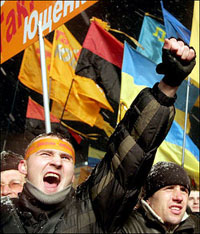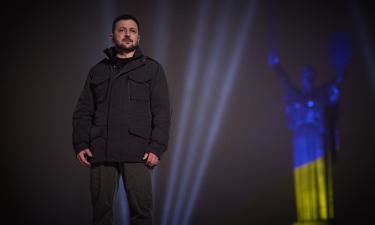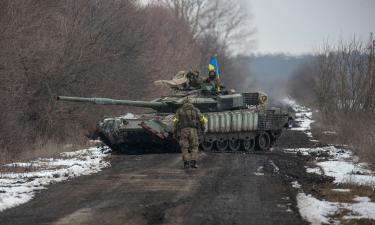Ukraine election call candidates with doubtful pasts
Ten have criminal records, 37 are under criminal investigation, and 41 await trial. All have been candidates in Ukraine's March 26 parliamentary elections. Critics call the collection of shady characters running in the ballot a disgrace and a sign of how little has changed in this ex-Soviet republic despite the high hopes and lofty promises of the 2004 Orange Revolution, when hundreds of thousands rallied under the slogan "Criminals in Jail."

"If you steal a hen or sack of grain from your neighbor, you go to jail, but if you steal a million you end up in parliament," lamented Volodymyr Stretovych, who heads the parliamentary committee against organized crime. Others counter that the very fact voters are now hearing about a candidate's unsavory past is a breakthrough compared to the lengths the government went in 2004 to hide and then deny the criminal record, which was later wiped clean, of then-presidential candidate Viktor Yanukovych.
The practice of seeking immunity from prosecution by taking up a parliamentary seat had become so standard in post-Soviet Ukraine that most people didn't pay any attention. But that changed after the Orange Revolution and President Viktor Yushchenko's promise to clean up dirty politics.
Ukrainian Interior Minister Yuriy Lutsenko, whose office is responsible for checking candidate lists to find those with criminal records, went public with the findings last month. He said his office has no questions about the candidates of only 11 out of the 45 parties taking part in the election. Among the parties with some questionable candidates are Yushchenko's party and the one led by former Orange Revolution heroine Yulia Tymoshenko.
But Lutsenko's decision to single out opposition parties for stronger criticism has drawn charges of politicking, particularly after he declared that 25 percent of the Yanukovych party list are "my clients" a tongue-in-cheek reference to people of interest to the police. He did not back up his allegations.
"Lutsenko is just making many groundless accusations as he himself campaigns," said Yanukovych's ally, Taras Chornovil. Natalia Vytrenko, leader of the People's Opposition party, sued the interior minister after he said that two candidates on her party list were wanted by Interpol.
She won. A Kiev court barred the minister from discussing personal and political issues regarding her party candidates, though the court didn't dismiss the actual allegation. Lutsenko has appealed the decision, insisting that he has a right to inform society about who is running.
Some politicians say they have been unfairly snared in the movement to expose alleged criminal candidates. Andriy Shkil, an ally of Tymoshenko, acknowledged his name is on the list but it's for a public disorder case he calls politically charged since it was opened in 2001 during a mass protest against then-President Leonid Kuchma. Ukraine's Central Election Commission said that according to Ukrainian law, anyone with a criminal record can't run for parliament. Those with cases pending are not affected.
Yaroslav Davydovych said eight of the 10 candidates with criminal records identified by the Interior Ministry have been struck off the ballot. The other two are in the process of being removed. Most of the 37 criminal investigations allegedly concern corruption and economics crimes, but exact details haven't been made public.
Many Ukrainians believe that the revelations in 2004 about Yanukovych's earlier convictions helped swing support to Yushchenko and gave political parties the impetus to pursue their rivals' buried pasts. Yanukovych was sentenced to three years in prison for robbery and assault in 1967, at age 17, but was released because he was a juvenile. The conviction was annulled when the alleged victim withdrew his statement. In 1970, Yanukovych was sentenced to two years in prison for an assault and battery, but again the alleged victim withdrew testimony and the case was killed.
Yevhen Poberezhniy, a member of the Ukraine's Voters advocacy group, defended the drive to release as much information as possible, saying Ukrainians have a right to know all they can about people for whom they are voting. "Parties bear responsibility before voters for the criminal past of people in their lists," he said, reports the AP.
N.U.
Subscribe to Pravda.Ru Telegram channel, Facebook, RSS!




